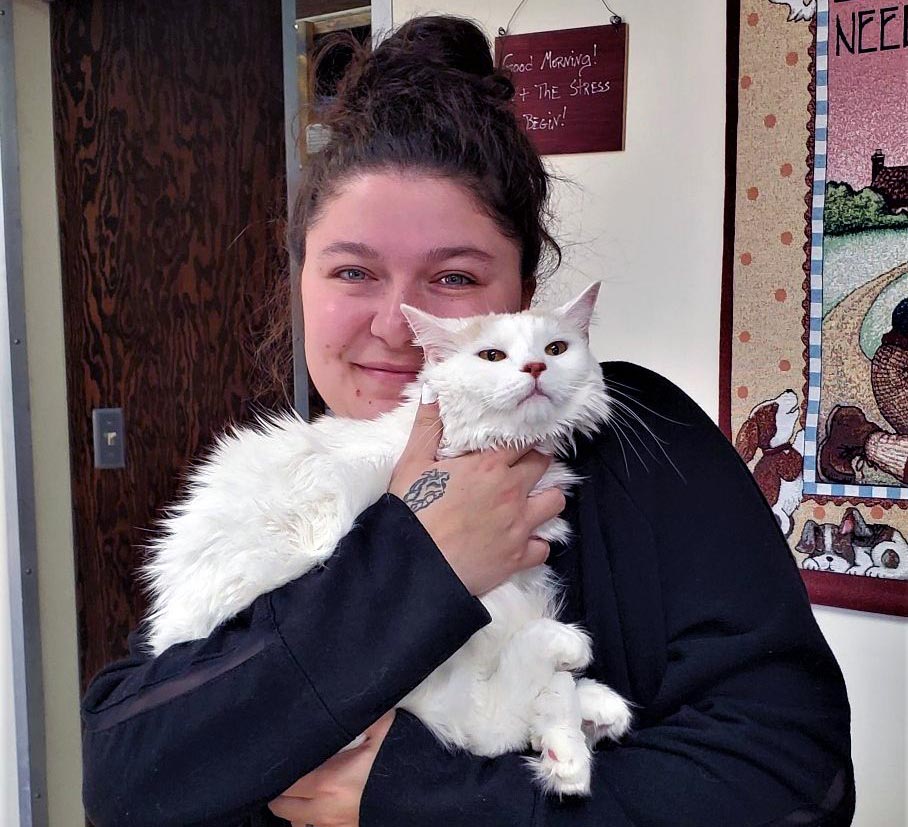Vaccinations play a vital role in maintaining your pet’s health.
At Cheyenne Mountain Animal Hospital, we recommend annual vaccinations for all pets in Colorado Springs, CO, to keep them happy and healthy. Our highly trained veterinarians can create an individualized vaccine schedule based on your pet’s age and lifestyle to ensure maximum protection.

Why Should I Vaccinate My Pet?
All dogs and cats should receive annual vaccinations to ensure they are protected from an array of viruses or diseases that can otherwise be prevented. Certain diseases can also be passed along to human family members and infect them as well.
It is easy for your pet to become infected or exposed to any virus, and prevention is more inexpensive than treatment with less stress for your pet, which is why we recommend having your pets vaccinated on a regular basis.
Vaccinations We Offer
The dog and cat vaccinations we offer are specific to each species and your pet’s specific lifestyle. Certain vaccines we recommend for all pets are known as core, while others based on lifestyle are non-core.
Below are the vaccinations we offer for pets:

Dog Vaccinations
DAPP
We recommend the DAPP dog vaccine be given with the puppy shots around six to eight weeks of age to protect against canine distemper, adenovirus, para-influenza and parvovirus.
Canines should receive additional vaccines every three to four weeks until they are 16 weeks old. An additional booster is given one year later and then every three years after.
Bordetella
The Bordetella vaccine is usually given intranasally during your pet’s first visit to our animal hospital. Puppies should have this vaccine to protect their respiratory system. We will provide an injectable dose three to four weeks later, and future shots will exchange between injectable and intranasal doses.
Leptospirosis
This vaccine can help protect your canine from a bacterial disease that can be spread to humans. Exposure usually occurs via contact with an infected animal, water, or urine. We recommend your dog receives two primary doses three weeks apart and a booster shot annually to maintain protection.
Rabies
All dogs must receive their rabies vaccination along with their puppy shots around 12 weeks of age as required by law.
Rabies is a most often fatal virus that attacks the brain and spinal cord of animals and humans, which is why it is crucial to preserve protection with an additional vaccine one year after the first shot, and once every three years moving forward.
Canine Influenza
Your veterinarian may recommend the canine influenza dog vaccine if your pet regularly encounters other dogs in boarding facilities, daycare, or dog parks. Canine influenza is a respiratory infection spread via contact with infected dogs or contaminated objects.
Cheyenne Mountain Animal Hospital also offers the H3N8 and H3N2 vaccines to guarantee the utmost protection.
Rattlesnake
This is yet another lifestyle vaccine which may be recommended for your pet based on their lifestyle and where you live. If it’s possible that your dog may encounter a rattlesnake, your veterinarian may recommend this vaccine.
This vaccine can lessen the effects of rattlesnake venom but does not replace the need for medical attention if your dog is bitten by a rattlesnake.

Cat Vaccinations
Rabies
The rabies vaccine can help protect your cat from the dangerous and frequently fatal effects of the rabies virus. We will provide a second booster shot one year after the initial vaccine and recommend cats receive this vaccine every three years afterward.
FVRCP
This vaccine protects cats from diseases including panleukopenia, rhinotracheitis, and calicivirus which are highly contagious and pose a serious risk to your feline’s health. The risk is especially increased for cats who spend time both indoors and outdoors.
FeLV
Feline leukemia virus is possibly the deadliest feline virus which is easily spread to and from cats. Infection may occur through bite wounds, casual contact, and from a mother to her kittens. Outdoor cats, indoor/outdoor cats and other cats exposed to them are most at risk and are strongly recommended to receive this vaccine.


